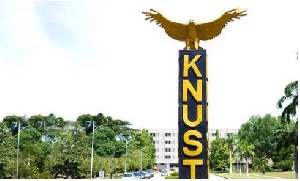The College of Science, Kwame Nkrumah University of Science and Technology (KNUST), has held the second edition of its novelty ‘Science Café’ in Kumasi, with an advice to universities to prioritize entrepreneurial skills education.
Mr. Vincent A. Ankama-Lomotey, Registrar of the College, said entrepreneurial skills training had the tendency to give graduates and undergraduate students the motivation to create jobs for themselves.
“Our students ought to be psyched up in embracing relevant extra-curricular activities intended to build their capacity for the job market just as South Korea and other countries are doing,” he noted.
This, he said, was critical to addressing youth unemployment in the country, saying higher education was meant to find solutions to development challenges in the society.
The ‘Science Café’, an initiative of the College Registrar, was introduced last year to serve as a platform for the university community to brainstorm on national development issues.
“Addressing Youth Unemployment in Ghana - the Way Forward”, was the theme for this year’s event.
The country had over the years been struggling with youth unemployment and had over the years been a major talking point as successive governments try to find an antidote to the problem with various initiatives, policies and programmes.
Mr. Kwame Owusu Kwarteng, a Senior Lecturer at the Department of Supply Chain and Information Systems of the KNUST School of Business (KSB), advised undergraduate students to cultivate the habit of saving.
This, he said, could give them the impetus of boosting their financial base in order to venture into self-employment, after their courses of study.
Dr. Reginald Annan, a Senior Lecturer at the KNUST Department of Biochemistry and Biotechnology, said suggestions at the forum would be compiled and shared with appropriate authorities for their inputs and response.
Participants at the Café, amongst others, proposed the reduction in the number of working years’ experience in certain job recruitments, to make it easier for fresh graduates to be employed soon after their education.
Additionally, corporate institutions, especially those in the public sector should strive to do away with the ‘Whom You Know’ syndrome to help create a level playing grounds for young graduates to be employed without much difficulty.
General News of Tuesday, 9 April 2019
Source: ghananewsagency.org













